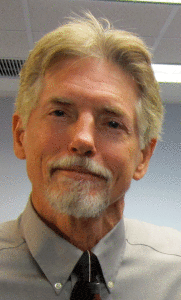AHA members are involved in all fields of history, with wide-ranging specializations, interests, and areas of employment. To recognize our talented and eclectic membership, AHA Today features a regular AHA Member Spotlight series.
 Roger Peace is an adjunct history professor at Tallahassee Community College. He currently resides in Tallahassee, Florida, and has been a member of the AHA since 2003.
Roger Peace is an adjunct history professor at Tallahassee Community College. He currently resides in Tallahassee, Florida, and has been a member of the AHA since 2003.
Almamater: PhD, Florida State University, 2007
Fields of interest: US foreign policy, Cold War history, Central America and Caribbean, Contra War in Nicaragua
When did you first develop an interest in history?
My sustained interest in the study of history began at age 22 (1974). I was curious to explore the origins of the unnecessary misery and waste in civilized societies … and I was pleased to find out that things used to be worse in many cases. My mother grew up in Nazi Germany and experienced World War II on the German side, attending high school in a bomb shelter. Her mother, meanwhile, lived in New York, having come to the US to find work in 1926. I got to thinking early on about how people fall into nationalistic mindsets and lose sight of the humanity of others, e.g., the Vietnamese people.
What projects are you working on currently?
I recently presented a paper at the “Global Perspectives on the Holocaust” conference at MiddleTennesseeStateUniversity (Oct. 2013) on “Beyond the Holocaust: Toward a Moral Framework for Historical Inquiry.” I am working on a longer manuscript for possible publication. The paper examines how historians and educators currently employ normative frameworks, such as Holocaust education, and outlines a broader normative framework, based on humanistic international laws and agreements, applicable to a wide array of issues.
I continue to be interested in all aspects of the Contra War, transnational social change movements, the Cold War in Latin America, and the ongoing ideological and political contest between capitalism and socialism.
Have your interests changed since graduate school? If so, how?
I am looking at larger generalizations and interpretations of history, including the historiography of US foreign relations.
Is there an article, book, movie, blog, etc. that you could recommend to fellow AHA members?
Well, of course I would recommend my own book: A Call to Conscience: The Anti-Contra War Campaign (Univ. of Massachusetts Press, 2012). I am reading Adam Hochschild’s To End All Wars: A Story of Loyalty and Rebellion (Houghton, 2011). I would recommend Andrew Bacevich’s periodic articles.
What do you value most about the history profession?
I value the ability to draw all subjects into view, to create a reservoir of knowledge, and to debate perspectives without excessive rancor. The latter offers a model for US society and politics, which is being overrun with one-way communications and money-backed posturing in lieu of discussion of issues. I especially value the work of Latin Americanist historians who have not been afraid to expose the underside of US history.
Why did you join the AHA?
To learn from other historians.
Other than history, what are you passionate about?
I am passionate about reef diving (when I get the chance), playing basketball, gardening, and talking about the world we live in and where we are collectively heading.
Any final thoughts?
What is most important in history is to ask important questions. Everything else follows.
This post first appeared on AHA Today.
This work is licensed under a Creative Commons Attribution-NonCommercial-NoDerivatives 4.0 International License. Attribution must provide author name, article title, Perspectives on History, date of publication, and a link to this page. This license applies only to the article, not to text or images used here by permission.